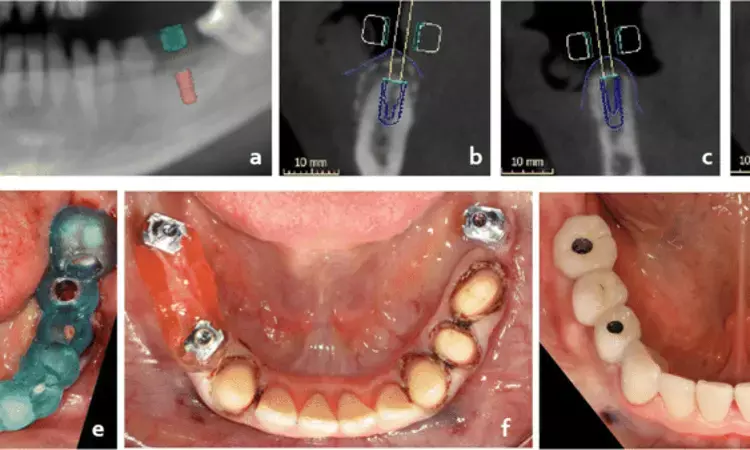- Home
- Medical news & Guidelines
- Anesthesiology
- Cardiology and CTVS
- Critical Care
- Dentistry
- Dermatology
- Diabetes and Endocrinology
- ENT
- Gastroenterology
- Medicine
- Nephrology
- Neurology
- Obstretics-Gynaecology
- Oncology
- Ophthalmology
- Orthopaedics
- Pediatrics-Neonatology
- Psychiatry
- Pulmonology
- Radiology
- Surgery
- Urology
- Laboratory Medicine
- Diet
- Nursing
- Paramedical
- Physiotherapy
- Health news
- Fact Check
- Bone Health Fact Check
- Brain Health Fact Check
- Cancer Related Fact Check
- Child Care Fact Check
- Dental and oral health fact check
- Diabetes and metabolic health fact check
- Diet and Nutrition Fact Check
- Eye and ENT Care Fact Check
- Fitness fact check
- Gut health fact check
- Heart health fact check
- Kidney health fact check
- Medical education fact check
- Men's health fact check
- Respiratory fact check
- Skin and hair care fact check
- Vaccine and Immunization fact check
- Women's health fact check
- AYUSH
- State News
- Andaman and Nicobar Islands
- Andhra Pradesh
- Arunachal Pradesh
- Assam
- Bihar
- Chandigarh
- Chattisgarh
- Dadra and Nagar Haveli
- Daman and Diu
- Delhi
- Goa
- Gujarat
- Haryana
- Himachal Pradesh
- Jammu & Kashmir
- Jharkhand
- Karnataka
- Kerala
- Ladakh
- Lakshadweep
- Madhya Pradesh
- Maharashtra
- Manipur
- Meghalaya
- Mizoram
- Nagaland
- Odisha
- Puducherry
- Punjab
- Rajasthan
- Sikkim
- Tamil Nadu
- Telangana
- Tripura
- Uttar Pradesh
- Uttrakhand
- West Bengal
- Medical Education
- Industry
Robotic computer-assisted implant surgery promising for placing dental implants in fully edentulous patients

Robotic computer-assisted implant surgery promising for placing dental implants in fully edentulous patients suggests a new study published in the Clinical Oral Implant Research.
This study evaluated the accuracy of dental implant placement using the robotic computer-assisted implant surgery (r-CAIS) technology in fully edentulous patients.
Fully edentulous and terminal dentition patients were enrolled for r-CAIS technology. Based on the cone-beam computed tomography (CBCT) examination, a customized positioning marker and a preoperative surgical plan were created before surgery. During the implant surgery, the implant osteotomy and placement were automatically performed using an autonomous robotic surgery system under the surgeon's supervision. A postoperative CBCT scan was used to determine the discrepancies between the planned and placed implants.
Results
Ten patients with 59 implants underwent autonomous robotic surgery. No adverse surgical events occurred. The deviations of global coronal, global apical, and angular were 0.67 ± 0.37 mm (95% CI: 0.58–0.77 mm), 0.69 ± 0.37 mm (95% CI: 0.59–0.78 mm), and 1.27° ± 0.59° (95% CI: 1.42°–1.11°), respectively.
The autonomous r-CAIS technology proved an accurate surgical approach for implant placement in fully edentulous patients due to the control of the angular deviation. Autonomous robotic surgery seems promising as an accurate technology for treating fully edentulous patients. However, further trials are required to provide more hard clinical evidence.
Reference:
Li, P., Chen, J., Li, An, Luo, Ke, Xu, S., & Yang, S. (2023). Accuracy of autonomous robotic surgery for dental implant placement in fully edentulous patients: A retrospective case series study. Clinical Oral Implants Research, 00, 1–10. https://doi.org/10.1111/clr.14188
Keywords:
Robotic, computer-assisted, implant, surgery, promising, placing, dental implants, fully, edentulous, patients, Li, P., Chen, J., Li, An, Luo, Ke, Xu, S., & Yang, S, Clinical Oral Implant Research
Dr. Shravani Dali has completed her BDS from Pravara institute of medical sciences, loni. Following which she extensively worked in the healthcare sector for 2+ years. She has been actively involved in writing blogs in field of health and wellness. Currently she is pursuing her Masters of public health-health administration from Tata institute of social sciences. She can be contacted at editorial@medicaldialogues.in.
Dr Kamal Kant Kohli-MBBS, DTCD- a chest specialist with more than 30 years of practice and a flair for writing clinical articles, Dr Kamal Kant Kohli joined Medical Dialogues as a Chief Editor of Medical News. Besides writing articles, as an editor, he proofreads and verifies all the medical content published on Medical Dialogues including those coming from journals, studies,medical conferences,guidelines etc. Email: drkohli@medicaldialogues.in. Contact no. 011-43720751


